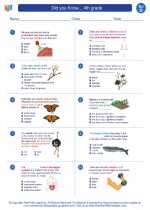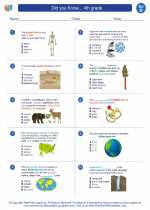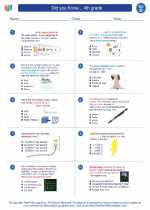Physiology: Understanding the Function of Living Organisms
Physiology is the branch of biology that focuses on the study of the function of living organisms and their parts, including the physical and chemical processes involved. It is a crucial field for understanding how our bodies work and how different systems within our bodies interact with each other.
Key Concepts to Understand in Physiology
- Cellular Physiology: Explore how individual cells function, including their structure, metabolism, and communication with other cells.
- Neurophysiology: Study the function of the nervous system, including the brain, spinal cord, and nerves, and how they control various bodily functions.
- Cardiovascular Physiology: Understand the function of the heart and blood vessels, including circulation, blood pressure, and the transport of nutrients and oxygen.
- Respiratory Physiology: Explore the mechanisms of breathing and how the respiratory system facilitates the exchange of gases between the body and the environment.
- Renal Physiology: Study the function of the kidneys and how they regulate fluid balance, filter waste products from the blood, and maintain electrolyte balance.
- Endocrine Physiology: Investigate the function of the endocrine system and the role of hormones in regulating various bodily functions and maintaining homeostasis.
- Digestive Physiology: Understand the processes involved in digestion, absorption, and elimination of food and waste products within the gastrointestinal system.
- Reproductive Physiology: Explore the function of the reproductive system and the processes involved in reproduction and development.
Study Guide for Physiology
When studying physiology, it's important to grasp the fundamental concepts and mechanisms that govern the functioning of living organisms. Here are some key points to focus on:
Cellular Physiology
- Understanding the structure and function of cell organelles, such as the mitochondria, nucleus, and endoplasmic reticulum.
- Exploring the processes of cellular respiration, photosynthesis, and cell division.
- Investigating cell signaling and communication, including the role of hormones, neurotransmitters, and receptor proteins.
Neurophysiology
- Understanding the structure and function of neurons, including the transmission of nerve impulses and the role of neurotransmitters.
- Exploring the organization and function of the central and peripheral nervous systems.
- Studying the mechanisms of sensation, perception, and motor control.
Cardiovascular Physiology
- Understanding the anatomy and function of the heart, including the cardiac cycle and the regulation of heart rate and blood pressure.
- Exploring the circulation of blood through the systemic and pulmonary circuits, as well as the microcirculation in tissues.
- Studying the mechanisms of blood clotting and the regulation of blood flow.
Respiratory Physiology
- Understanding the anatomy and function of the respiratory system, including the mechanics of breathing and gas exchange in the lungs.
- Exploring the regulation of respiration and the transport of oxygen and carbon dioxide in the blood.
- Studying the effects of altitude, exercise, and respiratory diseases on pulmonary function.
Renal Physiology
- Understanding the structure and function of the kidneys, including filtration, reabsorption, and secretion processes.
- Exploring the regulation of fluid and electrolyte balance, as well as acid-base balance.
- Studying the role of the kidneys in blood pressure regulation and the excretion of metabolic waste products.
Endocrine Physiology
- Understanding the major endocrine glands and the hormones they produce, including the mechanisms of hormone action and regulation.
- Exploring the role of hormones in metabolism, growth and development, stress response, and reproductive function.
- Studying the feedback mechanisms that regulate hormone secretion and maintain homeostasis.
Digestive Physiology
- Understanding the anatomy and function of the digestive system, including the processes of digestion, absorption, and nutrient metabolism.
- Exploring the regulation of gastrointestinal motility and secretion, as well as the role of gut microbiota in health and disease.
- Studying the mechanisms of appetite regulation and the impact of diet on digestive function.
Reproductive Physiology
- Understanding the anatomy and function of the male and female reproductive systems, including gametogenesis and hormonal regulation.
- Exploring the processes of fertilization, pregnancy, and childbirth, as well as the mechanisms of reproductive aging.
- Studying the regulation of reproductive hormones and the impact of reproductive technologies on fertility and contraception.
By mastering these key concepts and mechanisms in physiology, you will gain a deeper understanding of how living organisms function and how their different systems work together to maintain balance and health.
.◂Science Worksheets and Study Guides Fourth Grade. Did you Know... 4th grade
Study Guide Did you Know... 4th grade
Did you Know... 4th grade  Worksheet/Answer key
Worksheet/Answer key Did you Know... 4th grade
Did you Know... 4th grade  Worksheet/Answer key
Worksheet/Answer key Did you Know... 4th grade
Did you Know... 4th grade  Worksheet/Answer key
Worksheet/Answer key Did you Know... 4th grade
Did you Know... 4th grade 

 Worksheet/Answer key
Worksheet/Answer key
 Worksheet/Answer key
Worksheet/Answer key
 Worksheet/Answer key
Worksheet/Answer key

The resources above cover the following skills:
Core Ideas for Knowing Science
Life Science
Organisms are organized on a cellular basis and have a finite life span.